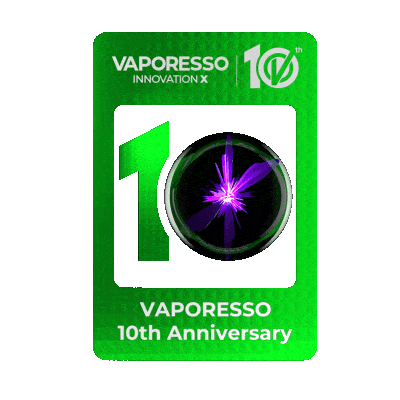Just had a tooth yanked out and now you’re wondering – can I vape during recovery or not? This is a common question for vapers who’ve undergone this fairly routine dental procedure.
The answer we have concluded from studies and experiences suggested that vapers should wait at least 48 hours after tooth extraction before resuming vaping.
In this post, we’ll walk through the potential risks of vaping after a tooth extraction. We’ll also discuss arguments for allowing it and share advice straight from dentists and oral surgeons. By the end, you’ll have a clear answer on if and when vaping may be safely resumed.

Reasons Why We Should Aviod Vaping After Tooth Extraction
Before jumping back into vaping, it's important to understand possible downsides and dangers first. Here are the main risks to keep in mind before you start vaping:
Dry Socket Danger
This nasty complication happens when the blood clot at the extraction site gets dislodged too early. This leaves the bone and nerves exposed to food, liquid, and contaminants in your mouth – making for severe pain and potential infections.
Vaping can lead to dry socket formation in a couple ways. The suction action of inhaling can literally pull the protective clot right out of the socket. The heat and chemicals from the vapor may also break down or dissolve the clot before the gums have healed.
Increased Infection Risk
Whenever you have an open wound in your mouth, you’re at risk for developing a bacterial infection. Any foreign substance introduced will increases the chances of germs getting into the empty tooth socket and setting up camp.
Vaping presents new organisms and bacteria, especially if you share vape devices or mouthpieces with other people. Bacteria and contaminants can also be transferred from your hands and environments into the sensitive surgical site each time you take a puff.
Delayed Healing
The various chemicals, flavorings and vaporized glycerin in vape juices may irritate the wound and surgical site. Exposure to these compounds could lead to inflammation that damages cells and slows the body’s natural healing abilities.
More Pain and Swelling
Related to the point above, vaping may aggravate the body’s inflammatory response and worsen pain after the extraction procedure. Most patients experience some degree of swelling and discomfort as the site heals over the following days. Vaping compounds this inflammation, rather than relieving it.
Interference with Medications

If your dentist prescribed antibiotics or other medications to support healing after the extraction, nicotine may interfere with these drugs’ efficacy. Smoking is generally discouraged with many prescription meds, and vaping nicotine could lead to similar contraindications.
Reasons Some Dentists May Allow Vaping After Extractions
While most discourage post-extraction vaping, some dentists recognize potential benefits that could make it reasonable in certain circumstances. They put forth arguments like:
- Nicotine acts as a stimulant that constricts blood vessels, possibly slowing bleeding and expediting clot formation. Early studies suggest nicotine may even positively impact wound healing and recovery timeframes.
- For dedicated vapers, abruptly stopping can be challenging both physically and psychologically. The oral fixation and nicotine hit provide comfort and distraction amid the discomfort of surgical recovery.
- Newer devices like Juuls involve very gentle puffing and produce minimal vapor. Used cautiously, these could satisfy cravings without excessive suction on the socket site.
- Nicotine can relieve both pain and anxiety during healing. For those highly dependent, vaping may provide medicinal effects that optimize the body's innate mending process.
- Most warnings focus on risks of smoking traditional cigarettes post-extraction. There is limited clinical data on modern vaping devices and juices in this context. So prohibitions may be premature without device-specific research.
However, most dentists would urge extreme caution vaping after extractions given the vulnerable state of the wounds. While arguments exist on both sides, they generally recommend waiting at least 48-72 hours and using vape products sparingly to allow proper healing.
Recommendations from Dental Experts
Dental practitioners really caution against rushing back into vaping after having a tooth yanked. Their advice comes from seeing post-op complications firsthand when patients don't allow proper healing time. They suggest waiting at least 48-72 hours before vaping again, even longer if the extraction was traumatic and the socket site is still actively mending. The clot has to fully stabilize and initial bone regrowth begin before sucking force is applied.
When you do start puffing again, take very gentle shallow inhales to minimize pressure changes in your mouth. Give yourself plenty of breaks between vaping sessions too, so the wound recovers between irritations. Be meticulous keeping the area clean too, since vaping introduces new bacteria and fungal spores. Use the medicated oral rinse your dentist recommends, and change vape mouthpieces frequently to avoid contamination.
Coughing or spitting forcefully is also hazardous after an extraction, because it can dislodge the protective clot prematurely. Try to suppress cough urges if possible. And don't spit aggressively either, since this creates suction effects that destabilize the clot. If you notice sharp pains or throbbing at the site when vaping, stop right away and give it more time. Your body is saying it's still actively healing.
You may also want to temporarily switch to lower nicotine e-juices after oral surgery. High concentrations of nicotine can be irritating to healing tissues. Tapering down your normal juice allows you to vape more gently. Just be sure to inform your dentist about all your medications, including nicotine intake, and ask the dentist's professional advice. There can be some compounds that don't mix well together or may inhibit healing.If you informed your dentist in advance, he/she will judge and advise you whether you can continue to vape.
It's smart to have a backup plan ready if your doctor says to refrain from vaping for a longer period. Stock up on nicotine gum, soothing oral pain relievers, and distraction activities to satisfy cravings in a healthier way. Ultimately, following your dental provider's advice will ensure the best outcome.

Can You Vape After a Tooth Extraction? The Bottom Line
In summary, vaping after tooth extraction is possible but comes with definite risks like dislodged clots and infections. Most dental experts advise waiting at least 2-3 days before gently resuming vaping, and only with careful precautions. For heavy vapers, having contingency plans to manage cravings and oral fixations is key.
With patience and by following your dentist’s advice, you can balance the benefits of vaping against potential complications. Be prepared to stop immediately if you experience increased pain, swelling or other concerning symptoms. Listen to your body and your skilled dental provider, and you’ll be back to pain-free vaping in no time!







COMMENTS